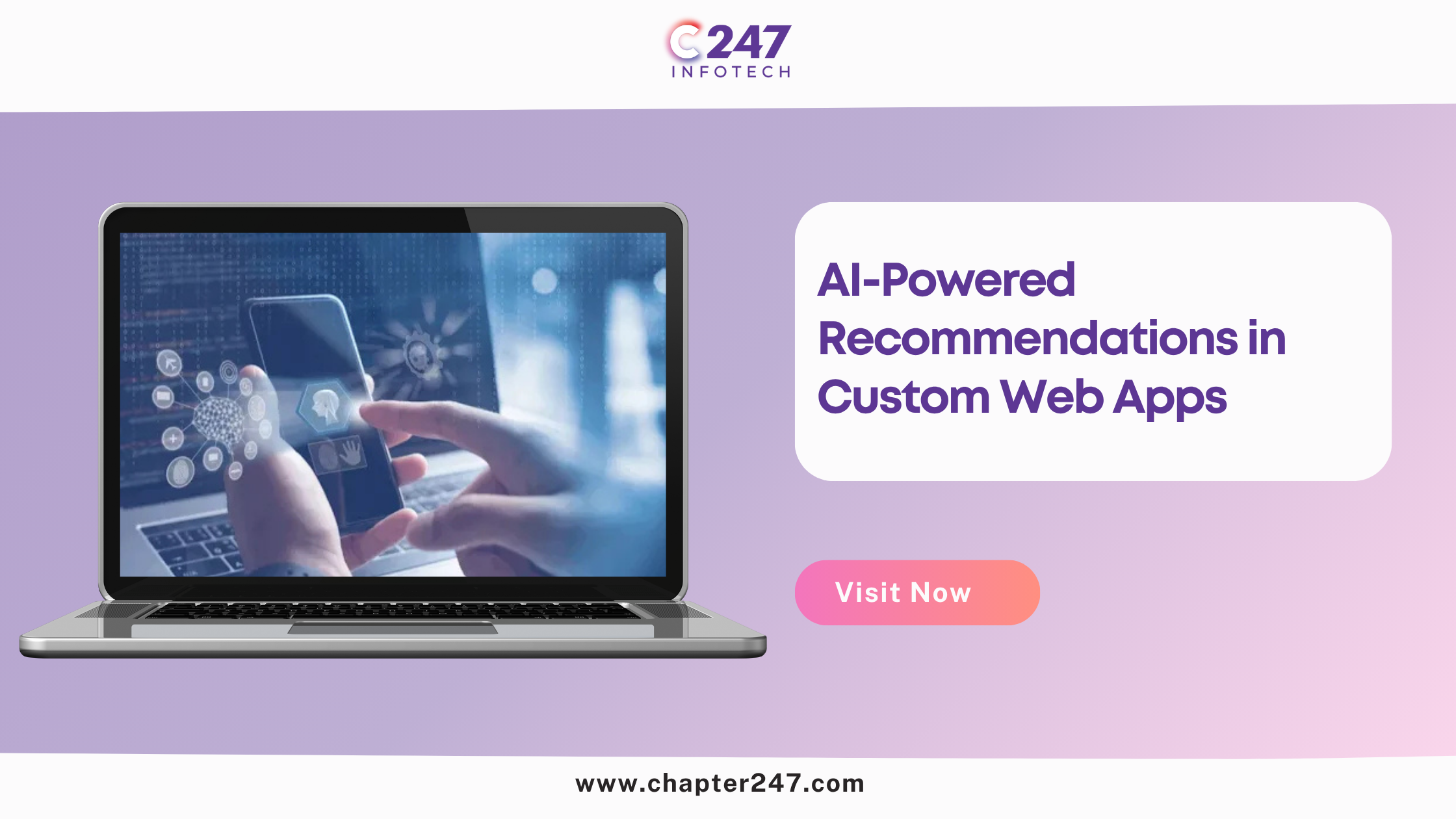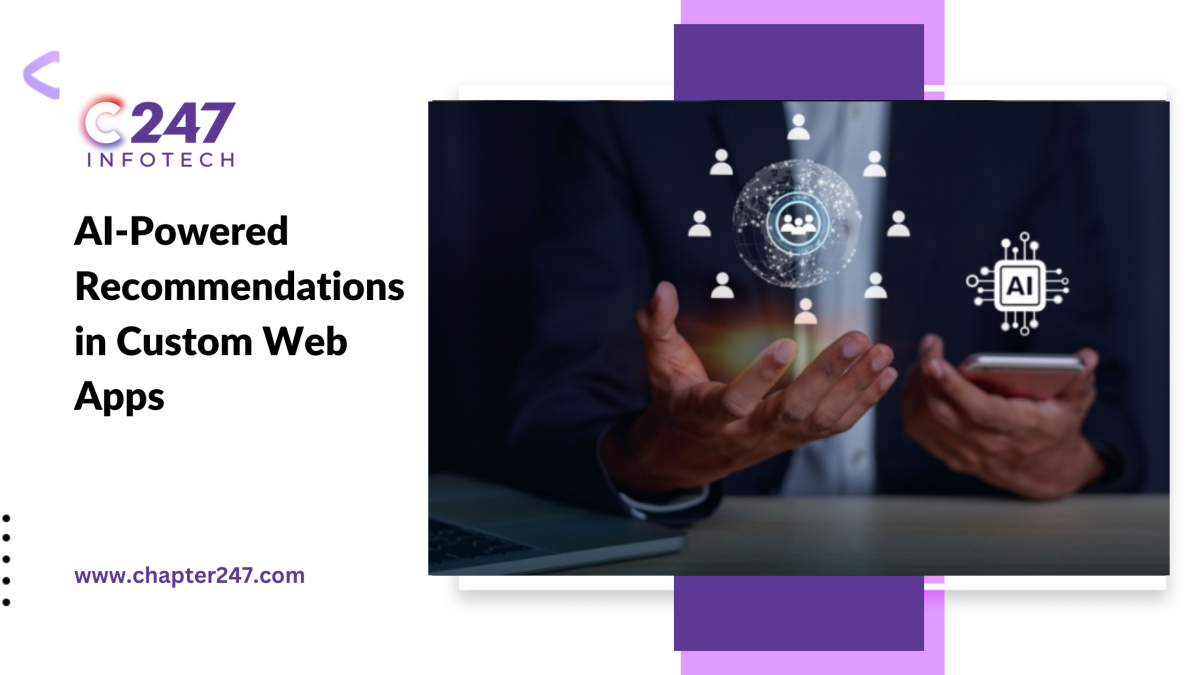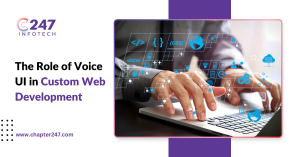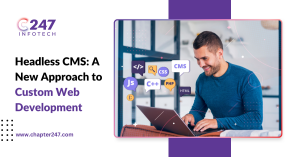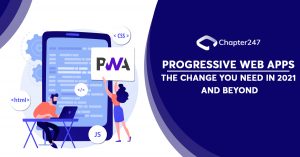In a modern digital world, everything is all about personalisation. It is not only about online shopping, listening to, or browsing a blog; users want websites to take note of their specific preferences. Here, the AI-assisted recommendations in tailored web applications are relevant. With artificial intelligence, developers can create systems that recognize visitors and deliver content or products that appear to be tailored to each individual.
In any business, it is not just an improvement of the user experience but a total change in the user experience. They are based on the fact that AI can be applied to identify behavioural patterns, anticipate needs, and provide helpful nudges that alleviate boredom. Additionally, the market for AI-based recommendation systems has expanded significantly in the last several years. At a compound annual growth rate (CAGR) of 10.5%, it will increase from $2.21 billion in 2024 to $2.44 billion in 2025.
How AI Learns What People Desire
AI is a replica of how people think, and it does it at a level that we would never catch up to and at a pace that is extremely fast. Whenever a user clicks on a product, spends time on a blog post, or jumps over a song, they do it without understanding that this adds some data to a system that learns about them.
With time, these AI models have become wiser, and they have come to define not only what users like but also what they prefer and why they prefer and like it. As an example, an online fashion store could employ AI to suggest an outfit not only depending on the previous orders but also on the current trends and colour preferences. This is what makes AI-driven recommendations so strong: the ability to put certain information into context.
Behind the Scenes of Smart Recommendation Engines
AI suggestions revolve around a mashup of methods. collaborative filtering is one of them, because it provides some suggestions based on the similarity of users. In the event that two people with similar purchasing histories both express a preference for Product A. Furthermore, if one of them buys Product B next, the system assumes that the other person might also be interested in B. This plan enables AI to relate users to one another in substantial terms.
Another example is a movie recommendation engine that captures genre, actors, or directors, and offers similar movies. The more complex systems employ deep learning and neural networks to identify the implicit ties and abstractive patterns involving the data of users.
The True Implication
The enhanced user journey can be considered one of the most evident consequences of AI-driven suggestions. When a visitor arrives on a custom web app that appears to know what the visitor wants, chances are higher that the visitor will stick around and digest more of the available content and hopefully, eventually make a conversion, be it buy something, subscribe to an email newsletter, etc.
In the case of e-commerce businesses, this translates to an improved conversion and average order value. Indeed, people will be more willing to put the recommended products into their carts when those products seem valuable and topical. Likewise, content-based platforms enjoy increased engagement rates, such as click-through rate, time on page, and recalls.
Creating the Future of Custom Web Apps with AI
The usage of AI via recommendation systems is one of the trends, to be exact, an upcoming necessity, within custom web applications. Those companies that fail to offer personal experiences risk being overtaken by consumers who are becoming accustomed to individual experiences. The use of AI is beneficial because it is versatile. Your web application might be selling products, articles, services, or videos, but AI can fit recommendations into various needs that you might have.
Integration of AI in a web application should be strategized. The question that developers have to answer is which type of data to gather and store securely, and which kind of algorithm is more appropriate for their use case. Privacy and ethical factors are also the most important, particularly regarding personal data. Users can be trusted to be able to get the necessary transparency in the process of generating the recommendations, and that is also a way of making sure that it does not go against you, releasing some data protection laws.
Conclusion
Custom web development as an industry is also changing because of AI-enabled recommendations. Through them, a smart, innovative, and profitable user experience becomes possible, and no contemporary-minded developer or business can afford to neglect it. Chapter247 could transform any web app into a responsive and intelligent platform that pleases users and delivers results with the appropriate strategy and technology.
